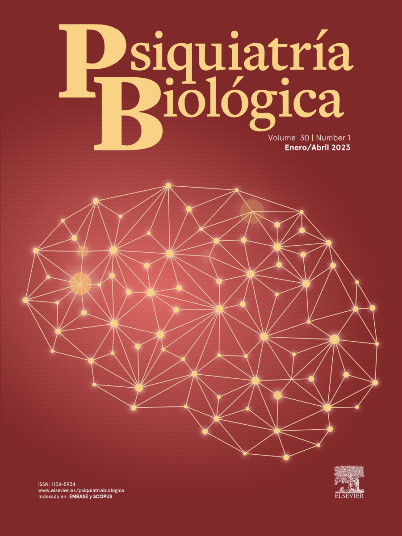Los estudios clínicos controlados y aleatorizados ofrecen inmejorables condiciones metodológicas para garantizar su validez interna atendiendo a sus estrictos criterios de inclusión y mecanismos para controlar sesgos. Sin embargo, además del elevado costo que implican, los pacientes y los tratamientos estudiados no siempre son representativos de los pacientes de la práctica clínica real, quienes en un importante porcentaje presentan condiciones comórbidas y diferentes niveles de gravedad. Además, a menudo reciben tratamiento combinado, lo cual es especialmente relevante en el trastorno bipolar. Los estudios pragmáticos y observacionales ofrecen un diseño capaz de estrechar esta brecha aumentando su validez externa, es decir, su capacidad de extrapolar resultados a la práctica clínica habitual. Entre los pragmáticos, el Systematic Treatment Enhancement Program for Bipolar Disorder (STEP-BD) en Estados Unidos demostró el importante porcentaje de comorbilidades, la frecuente pobre adherencia terapéutica y la escasa utilidad de los antidepresivos durante las fases depresivas, mientras que fortaleció la evidencia del uso de antipsicóticos como la quetiapina durante las fases de mantenimiento. A nivel europeo, los estudios observacionales multicéntricos, como el EMBLEM y el WAVE-BD, además de encontrar tasas similares de pobre adherencia con importantes repercusiones sobre la evolución y los costos directos, demostraron la utilidad de los antipsicóticos atípicos durante las fases maníacas, mixtas e incluso depresivas. Además, revelaron la gran frecuencia de la polifarmacia con una todavía alta prescripción de antidepresivos durante todas las fases del trastorno. Esto fue confirmado en estudios del mismo tipo en España como el SIN-DESPRES, MANACOR y EXPASEN que, además, han explorado la utilidad y tolerancia de nuevos antipsicóticos en el tratamiento del trastorno bipolar.
Randomized, controlled clinical trials offer the best methodological conditions to ensure internal validity, meeting strict inclusion criteria and mechanisms for controlling bias. However, in addition to the associated high cost, the patients and treatments studied are not always representative of those in real-life clinical settings, a significant percentage of whom present comorbid conditions and varying levels of severity. Furthermore, they often receive combination treatments, which is especially relevant in bipolar disorder. Pragmatic and observational studies provide a model that is able to decrease this gap, increasing its external validity, i.e. the ability of results to be transferred to routine clinical practice. Among the pragmatic studies, STEP-BD in the USA has demonstrated a significant percentage of comorbidities, the prevalent lack of treatment compliance and the limited usefulness of antidepressants during depressive phases, whereas evidence for using antipsychotics such as quetiapine during maintenance phases has been strengthened. On a European level, multicenter observational studies, such as EMBLEM and WAVE-BD, in addition to finding similar low compliance rates with significant implications for development and direct costs, demonstrated the usefulness of atypical antipsychotics for manic, mixed and even depressive phases. A high incidence of polypharmacy was also revealed, with antidepressant prescription rates remaining elevated during all phases of the disorder. This finding was confirmed in similar studies in Spain, such as SIN-DESPRES, MANACOR and EXPASEN, which also explored the usefulness and tolerability of new antipsychotics in treating bipolar disorder.






